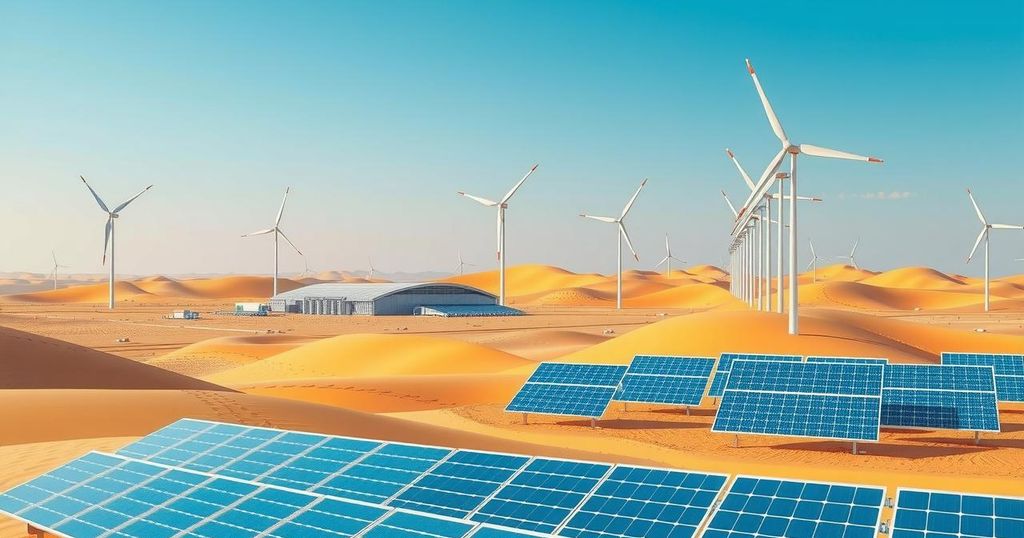The Trump administration’s cancellation of Iraq’s sanctions waiver has intensified the country’s energy crisis by halting Iranian natural gas imports. While Iraq has the resources, it lacks the infrastructure to utilize them effectively. The U.S. seeks to compel Iraq to minimize dependency on Iran while navigating complex regional dynamics. A review of U.S. policy and support for infrastructure development is essential for Iraq to achieve energy independence.
The Trump administration’s recent withdrawal of Iraq’s sanctions waiver has led to a significant energy crisis for the country, which relied on Iranian natural gas for approximately 40 percent of its electricity. Iraqi infrastructure struggles to manage this transition as Iranian supplies have proven to be unreliable, particularly during the cold months. Iraq has traditionally imported around 10 gigawatts of power from Iran.
This decision aligns with President Trump’s strategy of maximum pressure on Iran, intending to compel Tehran to make concessions regarding its nuclear program while also curtailing its support for groups such as Hamas and Hezbollah. The waiver, initially granted in 2018 after the U.S. exited the Joint Comprehensive Plan of Action, was allowed to expire after repeated reminders to Iraq to minimize its energy dependence on Iran.
Despite being the second-largest oil producer in OPEC and possessing significant natural gas reserves, Iraq remains inadequately equipped to utilize these resources for energy production. Much of the country’s gas is associated with oil extraction but is often flared rather than captured due to infrastructural deficiencies. This has left Iraq in an unprepared state as it seeks to supplement its energy needs for the upcoming summer.
Compounding these challenges is the heavy reliance on gas-fired power plants in eastern and central Iraq, which have historically relied on Iranian gas supplies. The cessation of these supplies presents daunting logistical and financial issues as the country attempts to find alternative sources.
Washington also aims to push Iraq towards resolving its disputes with Kurdistan, thereby facilitating oil exports through Turkey, which could counterbalance Iranian oil production. Additionally, the U.S. pressures Prime Minister Mohammed Shia Al-Sudani’s administration to distance itself from Iran, though this has historically been difficult due to Iraq’s sectarian dynamics and Iranian influence over certain local militias.
Ongoing interference from both the U.S. and Iran has severely hindered Iraq’s ability to address its energy infrastructure problems. Issues such as terrorism, political instability, and a lack of funding remain crucial obstacles. The Jordan-Iraq electricity project aims to improve electricity supply by connecting the two nations’ grids, but it has faced considerable delays due to funding and political disputes.
There is potential for a connection with the Jordanian electricity network to significantly mitigate Iraq’s dependence on Iranian supplies, potentially saving Iraqis substantial financial resources. However, multiple aggravating factors, such as corruption, security challenges, and a lack of effective renewable energy utilization, continue to undermine Iraq’s energy autonomy.
Iraq generates a meager portion of its electricity from renewable sources, with hydropower contributions below 3 percent and solar and wind at less than 1 percent. Given the urgency of the situation, it is problematic for the U.S. to demand a rapid achievement of energy independence from Iraq while historically failing to assist in rebuilding its infrastructure post-conflict.
The Trump administration should reassess its decisions and provide meaningful support to help Iraq achieve energy independence. This could involve advancing initiatives like the Jordan electricity link and fostering regional cooperation with Gulf States. A comprehensive national energy strategy is necessary to tackle the challenges that have beleaguered Iraq for over two decades.
In conclusion, the U.S. withdrawal of Iraq’s sanctions waiver has exacerbated an existing energy crisis, leaving the nation dependent on unreliable Iranian imports. Although Iraq possesses substantial oil and gas reserves, its infrastructure inadequacies have hindered effective utilization. The U.S. must reconsider its approach and provide support to help Iraq create a self-sufficient energy system, addressing key challenges such as political instability and infrastructural needs to foster long-term energy security.
Original Source: www.arabnews.com






